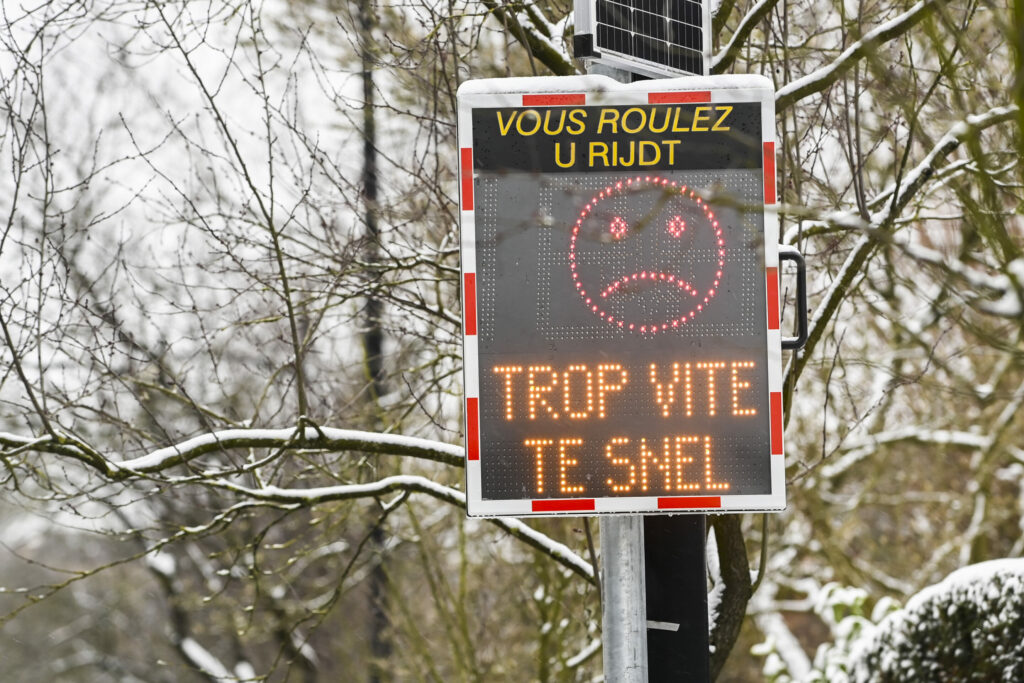Drivers of company cars can escape local authority fines for speeding offences due to a loophole in the law. In many cases, the driver cannot be found in time to be fined.
Since 2021, Flemish municipalities have been able to give people a Municipal Administrative Sanction (GAS) fine for speeding on their territory. This can be done for violations on roads where the speed limit is 30 or 50 kilometres per hour (km/h) when the limit is exceeded by a maximum of 20 km/h.
Almost half of the 285 Flemish municipalities now impose such fines. However, drivers of company cars can easily avoid them, De Tijd reported. This is due to a stipulation in the law since April 2024, which states that municipalities can only sanction natural persons and not legal persons (an organisation which can enter into obligations, build up assets and be held liable, just like a natural person).
As company cars are registered in the name of a company or a leasing company, the local police – who chase up the speeding offence – or the municipality's sanctioning official must verify who drives the car. This information must be requested from the employer or the leasing company.
Abusing the loophole
Larger companies often work with leasing companies, which usually pass on the names of offenders quickly. However, small and medium-sized companies (SMEs) and management companies don't always do so. Neither the police nor the municipality can oblige the company in question to forward the personal data of the offender.
"This is a particularly unfortunate situation," said mobility expert Dirk Lauwers (University of Antwerp and Ghent University). "It threatens impunity for the heaviest and most commonly used cars in the Flemish fleet."
The police can draw up an official report and send it to the public prosecutor who can then issue a fine, but according to the Association of Flemish Cities and Municipalities (VVSG), this is not happening. It noted that such reports are not a priority for public prosecutors.
Some companies do pass on the driver's name but do so too late: the local police only have 14 days to deliver a fine to the municipality, which can then issue the GAS fine. The Road Traffic Act gives companies 15 days to provide the driver's details. If the company provides the information on the 15th day, the case can no longer be handled in time to fine the offender.
Related News
- People in Belgium can request digital ID cards from November 2026
- Low Emission Zones: What are they and what fines do drivers risk?
The VVSG has repeatedly brought the problem to the attention of the competent administration. It sees the loophole as a "potential free pass for many company car drivers," adding that it is purposefully being used in this way. However, it says it has no information on how many people have escaped punishment through this loophole.
Experts and the VVSG are calling for the loophole to be closed, either by extending the period in which the police can pass on the name of an offender or by removing the restrictions that municipalities can only fine natural persons. Flemish Minister of Mobility Annick De Ridder (N-VA) said that an interfederal working group will be meeting on Wednesday to explore possible solutions at the federal level to solve the timing problem.

